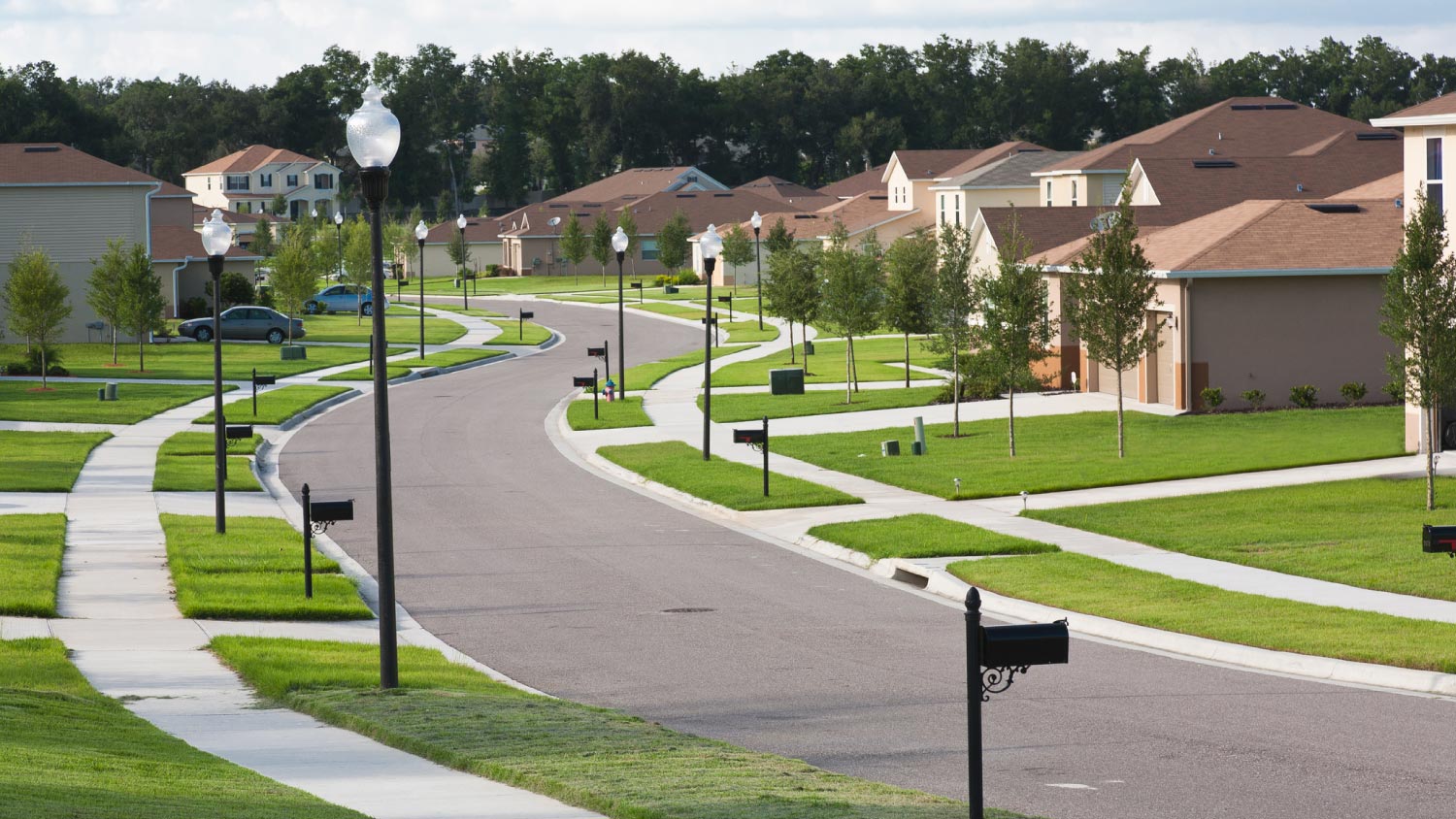
Need to know when your house was built? Here’s a guide on how to find out your home’s build date.
It’s not always a beautiful day in the neighborhood


It can be frustrating for homeowners to not get a response from their HOA.
Continue to pay your monthly fees to avoid further issues.
If the matter is affecting other homeowners, band together with neighbors for a speedier response.
If you live in a condo, townhouse, or other planned community, you likely pay monthly fees to belong to a homeowners association (HOA). The HOA sets forth the rules for maintaining a safe and orderly place to live.
As homeowners, you and your neighbors are expected to abide by HOA rules or risk having to pay hefty fines. If you have questions or concerns about any of the regulations, you should contact a member of the HOA. But what happens when your calls and emails go unanswered? Here are some tips on how to get the attention of an unresponsive HOA.
While it can feel frustrating to wait for a response from your HOA, it’s important to keep in mind that members of your HOA are elected volunteers, not paid staff. As such, it’s possible that your initial request or query is sitting in an inbox that is not checked as often as you would like.
If you don’t hear back within two business days, you can call or email again, but it might be time to try another way of contacting the powers that be. Ensure you are using the preferred method of communication; for example, if the HOA says to call, but you’re sending emails, that could be why you’re not getting a speedier response.
HOAs have a reputation for instituting strict policies and regulations, ranging from where you must place your garbage pails to the paint color of your home’s exterior. You might not agree with all of the rules, but as a member of the HOA, you must abide by them or pay a fine.
That’s why it’s important that you have a clear understanding of the rules in the HOA bylaws. If you violate a rule that’s stated in the HOA bylaws, your complaint won’t hold up well. However, if the bylaws are unlawful or unclear, you may have grounds to fight the issue. If you’re dealing with an unresponsive HOA, check the bylaws to determine whether there’s a designated response period for homeowner concerns.

Homeowner association meetings are open to residents. If you haven’t had luck getting a response to your query or complaint, attend the next meeting. Better yet, contact a board member before the meeting and request that they add your concern to the meeting’s agenda. The board might not be able to resolve your issue at that particular meeting, but the people who have the power to do so will be there to discuss your issue.
While it may be tempting to stop paying your HOA dues when dealing with an unresponsive homeowners association, it will only cause more problems down the line. Do not fall behind on your HOA dues while you wait for an issue to be handled. Otherwise, you could face additional fines or an even larger issue—foreclosure on your home.
While it depends on where you live, an HOA is typically allowed to start the foreclosure process when you fall behind on your annual or monthly dues. It might be frustrating to continue to pay these fees while you’re waiting for a response to your question or concern, but the repercussions are too harsh to do otherwise.
If your issue similarly affects other neighbors, discuss banding together as a united front. Perhaps a bylaw that made sense at one point no longer does for the current community. There is strength in numbers when it comes to getting the HOA’s attention, and presenting a common problem may help to expedite the process.

Again, HOAs are known for their strict regulations that could make you consider packing up and moving elsewhere. However, the HOA is also responsible for some of the best aspects of the neighborhood community, including keeping it safe and clean.
Provided the issue is not affecting your protected rights and isn’t making your day-to-day life intolerable, it’s advisable to keep relations civil with your HOA. It’s your right to question and lobby for changes to the bylaws, but you should consider whether the energy spent doing so is worth the results. If you’re not sure whether to press an issue, talk with your neighbors to determine whether it’s worth bringing to the HOA.
As a last resort for dealing with an unresponsive HOA, you might have to hire an attorney to advocate on your behalf. You will have to fund any legal fees incurred, so this is typically a final option if you have not heard back from your HOA about an urgent matter. This plan of action should be reserved for issues related to monetary or safety issues.
If a group of neighbors is involved in the complaint, sharing the legal fees is appropriate. Depending on the outcome of the situation, the court might order the HOA to reimburse you for the fees, but this is a best-case scenario only.
My wife and I just finished a whole home remodel with Modern Build Solutions and it turned out perfect!!! We did kitchen, bathroom, floors, and even added a new pantry closet for extra storage. We live in a condo with strict rules regarding insurance, work times, elevators, etc. and Modern...
I truly pray anyone seeking to use AHS reviews this before doing so. DO NOT!!!!!! I've had for 2 years (yes ignorant to renew after the first incident, but please read and dont make the same mistake!) and it has been a nightmare to get service. First incident involved plumbing. The plumber...
Choosing Metroplex Pro Builders for my bathroom remodel was one of the best decisions I've made as a homeowner. Their expertise and dedication to customer satisfaction were evident throughout the entire process. They listened to my needs and preferences, offering valuable suggestions...
WARNING! WARNING!! WARNING!!! BE WARNED..... An absolute utter remorse hiring this company. First, an agent will assertively set up an appointment to get into your home as soon as possible. (#1 warning sign!) Second, the technician arrives unprepared with almost NO knowledge about the task,...
Lonnie Davis is the most thoughtful, helpful carpenter I have met in years. I am an elderly homeowner, 75 who needs help and advice on interior remodeling projects, bath and kitchen . . . . he understood this and wanted to return to work for me. I never use the term carpenter lightly . . . ....
My wife and I just got approved on our home loan in South Carolina. After experiencing some financial hardships in the past and being turned down by multiple other lenders, we stumbled across a wonderful review about Hacknet Credit Specialist on Loan Cabin for help because we had a lot of...
Great price, great workmanship. Will hire again and recommend.
My appointment was scheduled at 9:30 AM and the agent (Wes) arrived at 9:45 AM. He is very professional and shook my hand immediately upon entering and told me what was going to take place. The job took him approximately 75 minutes and he called me over a couple times to explain what he was...
From average costs to expert advice, get all the answers you need to get your job done.